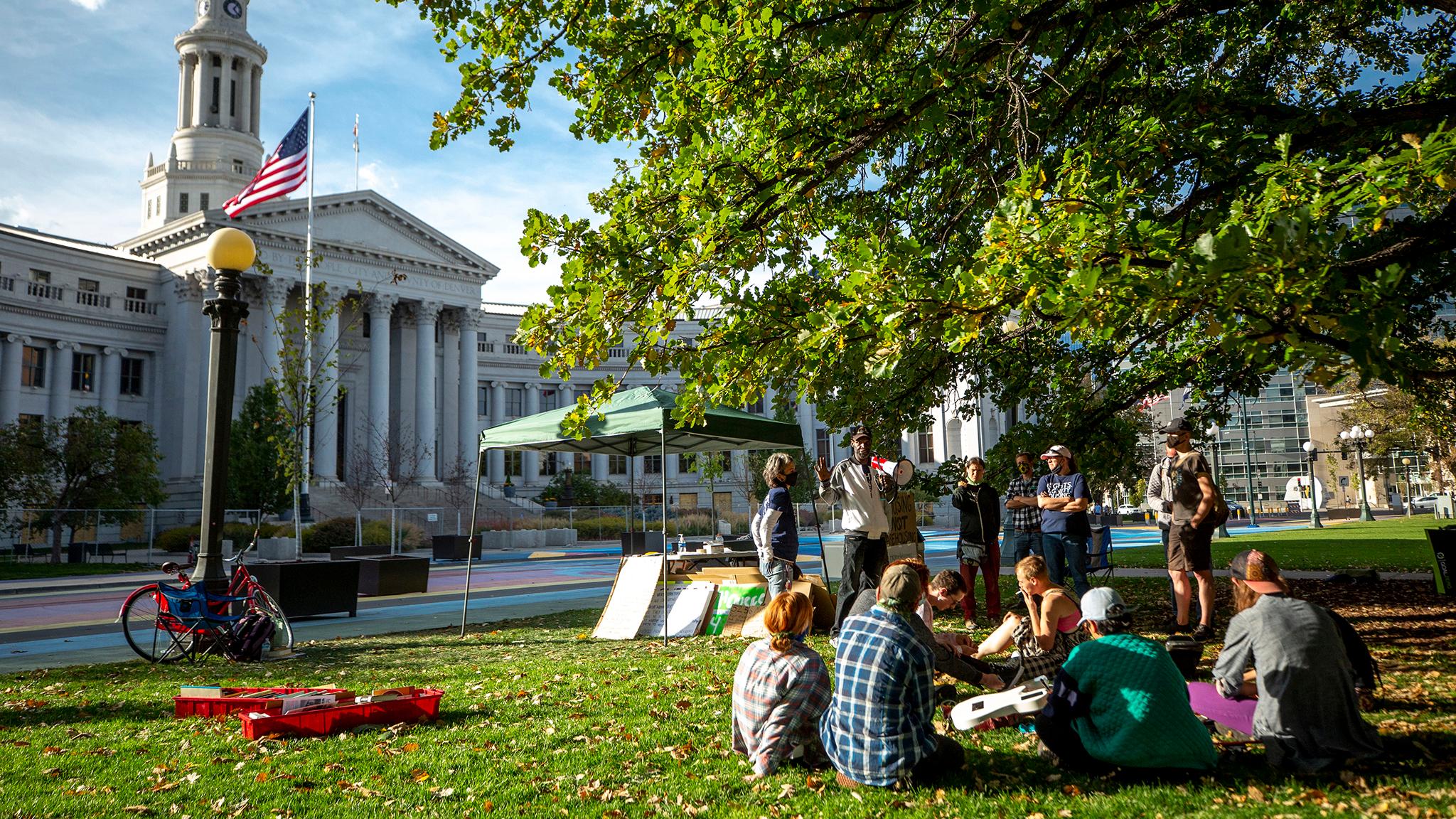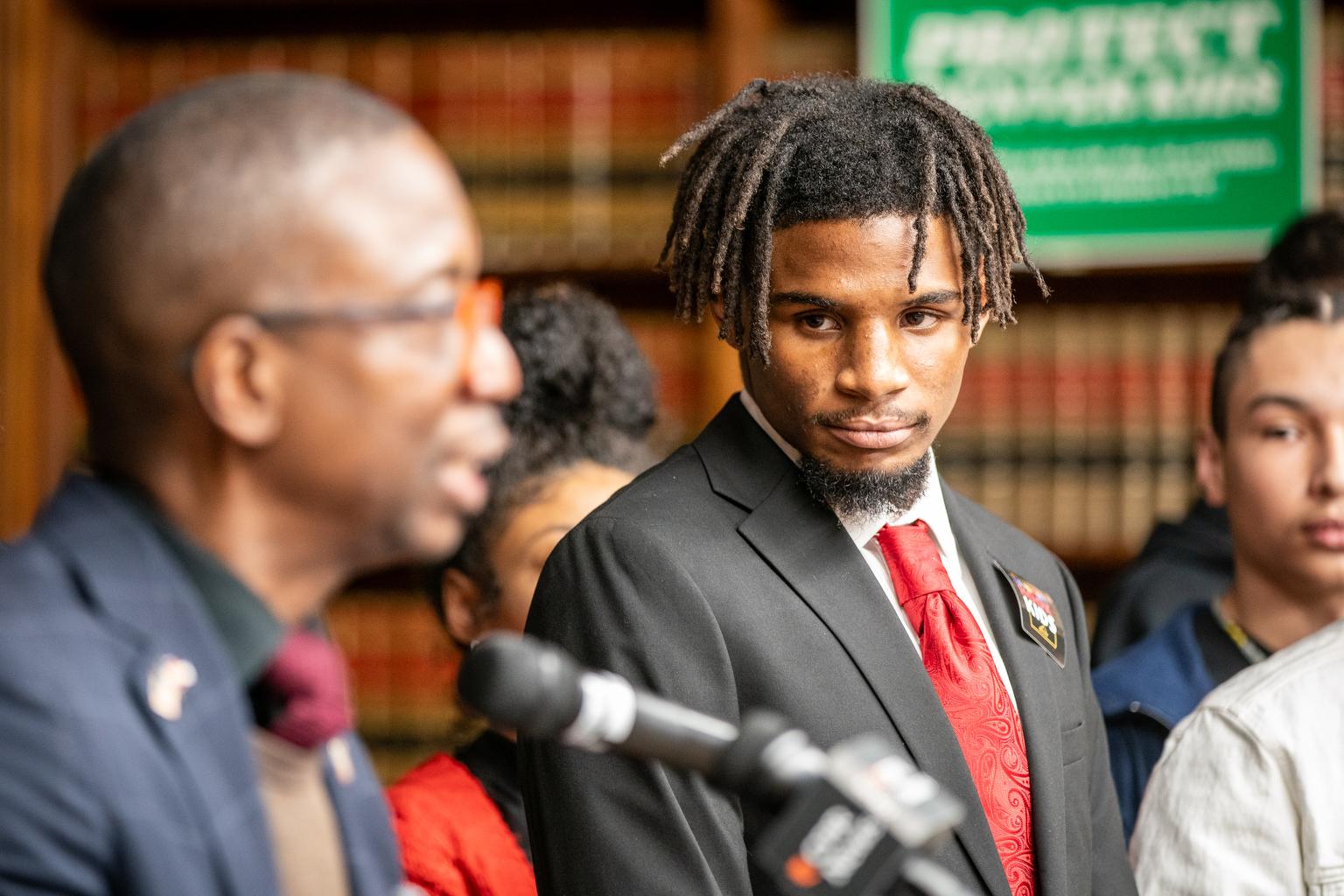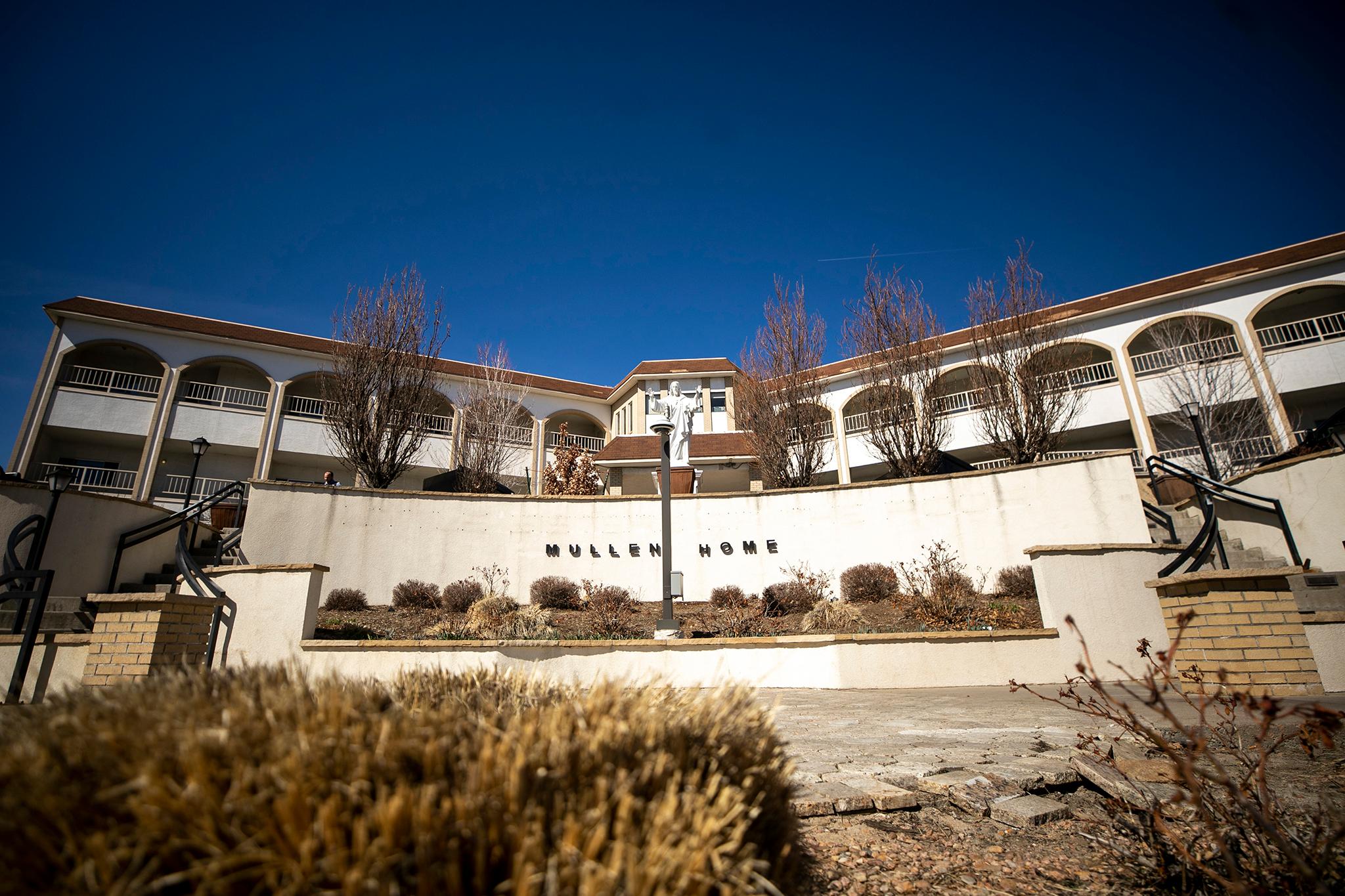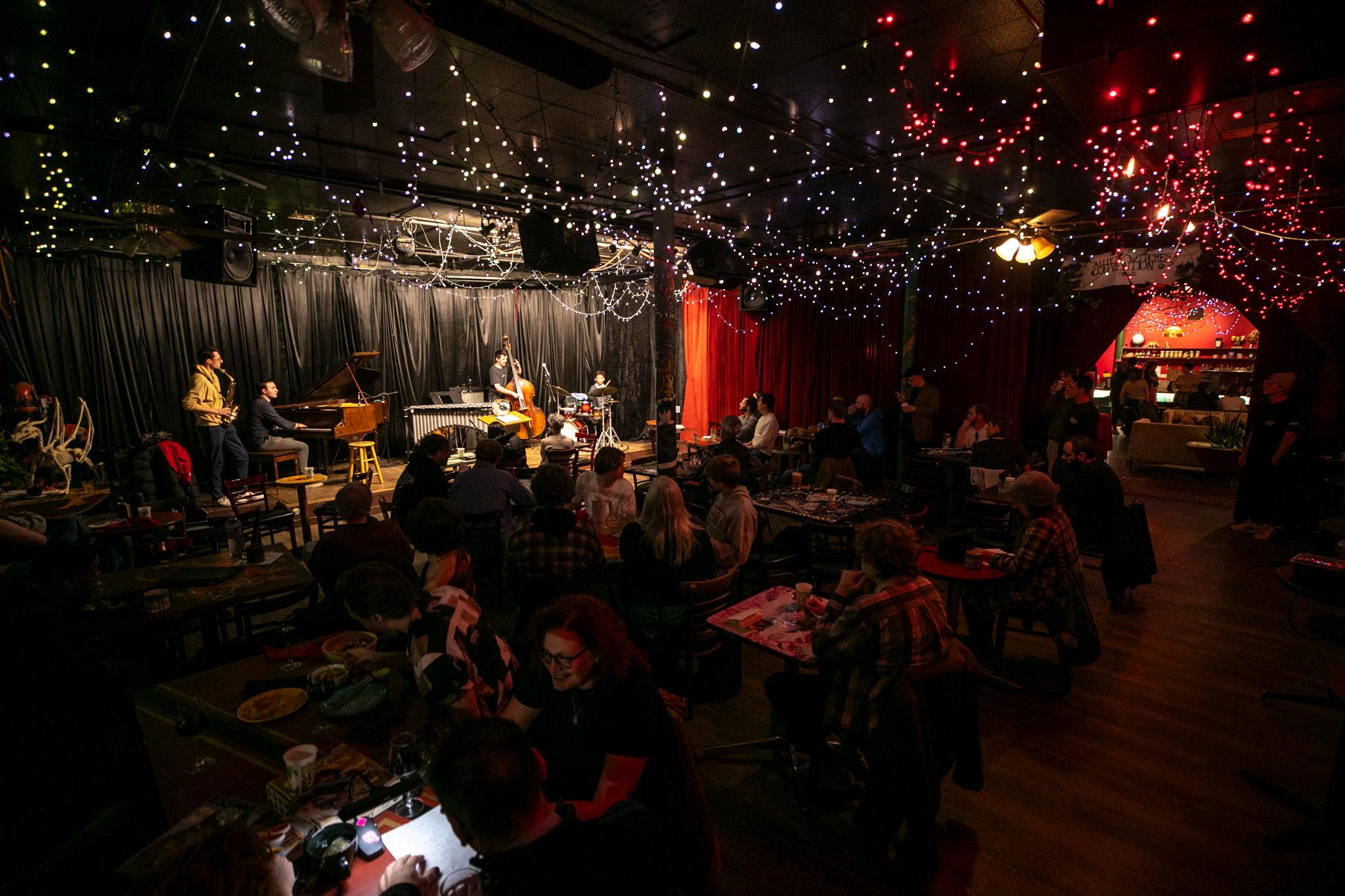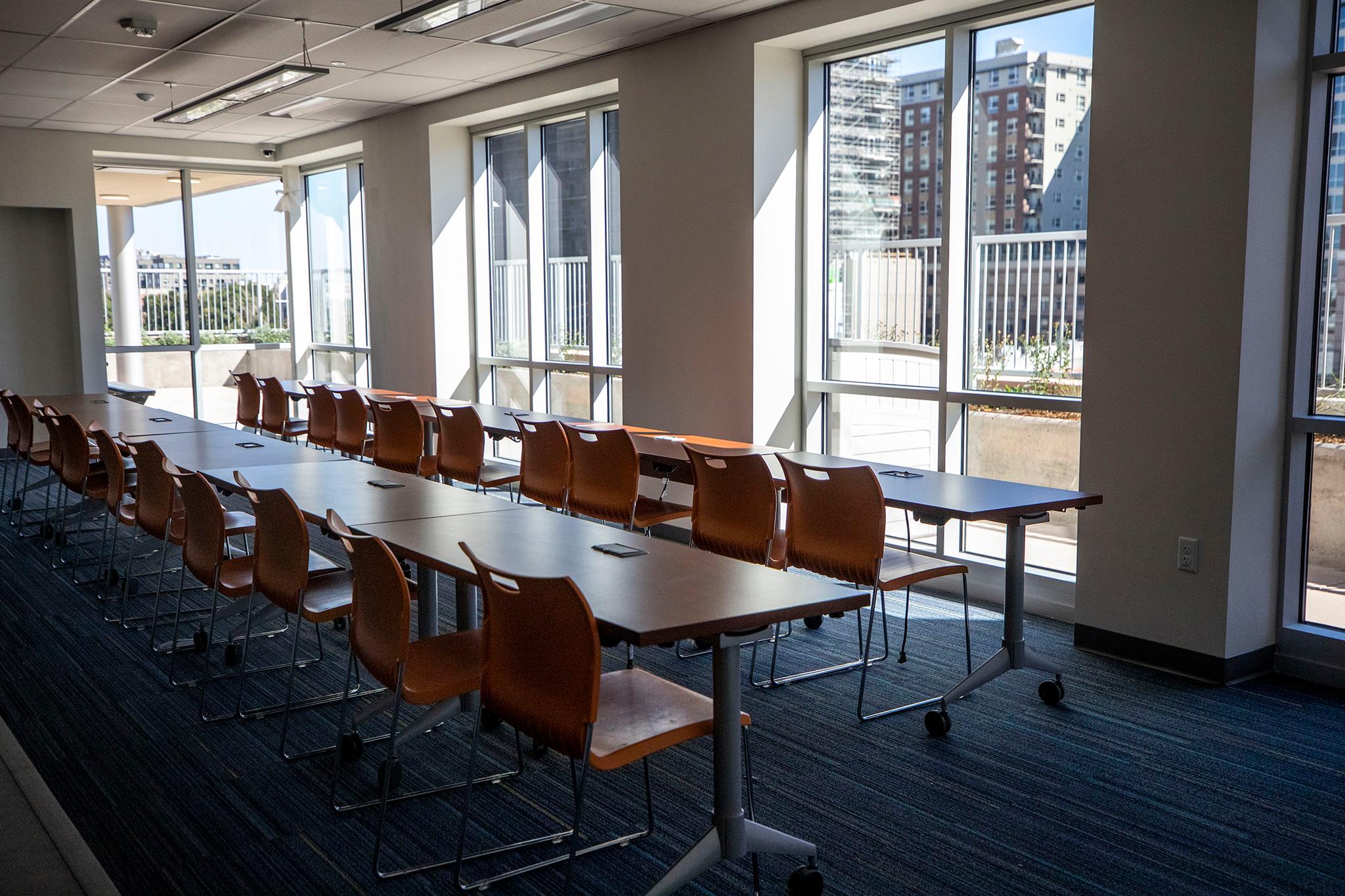People experiencing homelessness and their advocates plan to spend more than three days in front of the City and County Building to draw attention to a crisis that disproportionately impacts Blacks and other minorities.
Wind ruffled voter information leaflets on a table set up on Wednesday, the first day of the "race and homelessness vigil." Jerry Burton, whose Denver Homeless Out Loud advocacy group organized the effort, said voting was one way to push for change.
"Vote for the people with experience," said Burton, who has experienced homelessness and is running to represent District 33, an area in Denver, in the state Senate.
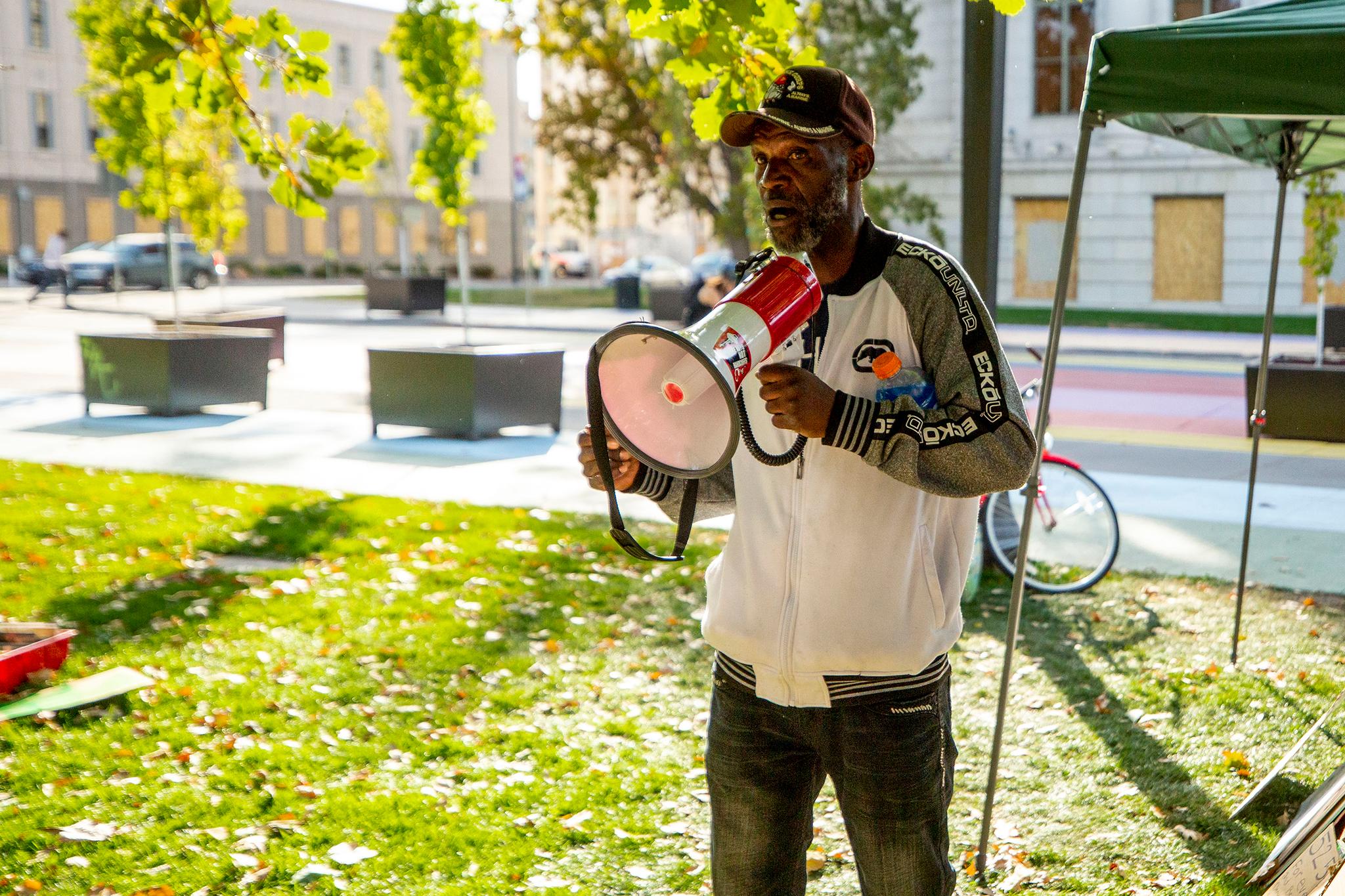
Denver Homeless Out Loud started the vigil at 7 a.m. and planned to continue until 10 p.m. Saturday. The vigil is in honor of the Black, indigenous and people of color counted in Denver during the most recent Point in Time, an annual survey of homelessness.
While the count held every January is an undercount, it does indicate trends. The Metro Denver Homeless Initiative, which manages the Point in Time, noted in a recent report that one troubling trend concerns race. Blacks, for example, make up less than 10 percent of Denver's total population but a quarter of its homeless population.
"This is the result of systemic oppression and policies which continue to ignore this racial disparity," Matthew Meyer, executive director of the Metro Denver Homeless Initiative, said in introducing his group's report.
As the first day ended, organizers erected tents along the sidewalk to continue the vigil overnight. Terese Howard, a Denver Homeless Out Loud organizer, said police arrived and said anyone sleeping in the tents could be ticketed under Denver's ban on urban camping. She told the officers that the tents were unoccupied and "props in a First Amendment protest," but pointed out that people experiencing homelessness who planned to sleep in the area needed protection from the elements. Howard said the encounter ended with police offering one-night hotel vouchers and activists, instead of continuing the vigil overnight, spending much of the night driving people experiencing homelessness to hotels and helping them check in for the night. The vigil tents were taken down.
Christine Downs, a police spokeswoman, said 13 vouchers were distributed.
The vigil resumed Thursday morning.
"What I'm hoping will come out of the three nights is that our housed neighbors, for one, will get on board with safe outdoor spaces in every neighborhood," Burton said.
Safe outdoor spaces, also known as sanctioned camps, are designed to provide people experiencing homelessness with shelter, bathrooms and connections to housing, health care and other services. Mayor Michael Hancock announced in June that, despite his longstanding opposition to letting people live on the streets, he agreed that Denver should have a city-sanctioned, temporary camp during the pandemic. Since then, the city and the nonprofit that would manage the first camp, Colorado Village Collaborative, have met opposition from residents and businesses in two neighborhoods proposed to host the first sites. No site has been settled on.
Burton called for sanctioned camp sites in each of the city's 11 council districts, and for every member of council to suggest a site.
"We need to do this ASAP," Burton said. "We need to expedite this because winter is coming up."
The literature table included, in addition to the voting material, a petition decrying street cleanups that scatter people experiencing homelessness and a schedule of vigil activities that included speeches by politicians and yoga classes. The table held no leaflets about the Homelessness Resolution Sales Tax measure that is on the November ballot.
The measure, 2B on the Denver ballot, proposes increasing the sales tax by .25 percent to 8.56 percent to raise funds to build housing, improve shelters and take other steps to address homelessness.
Benjamin Dunning, a Denver Homeless Out Loud co-founder, said his group was neutral on 2B.
"The scale isn't where it should be," Dunning said.
The tax would raise an estimated $40 million a year, likely less in its first year because of the economic impact of the pandemic. Dunning said homelessness was "a multibillion dollar issue."
Dunning added that Denver Homeless Out Loud would like to see all of the money raised go to building housing.

